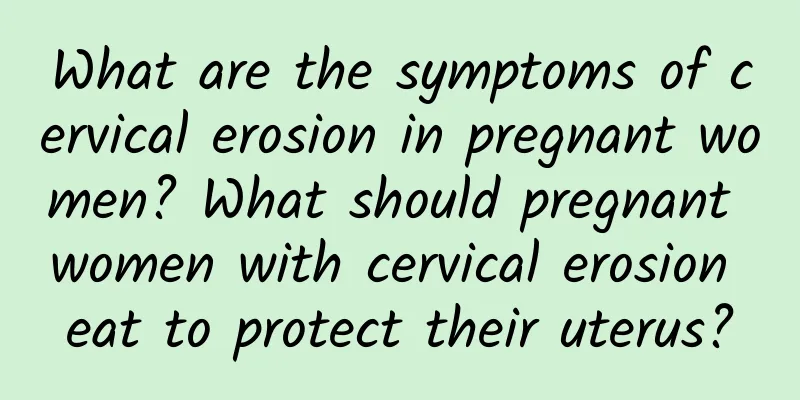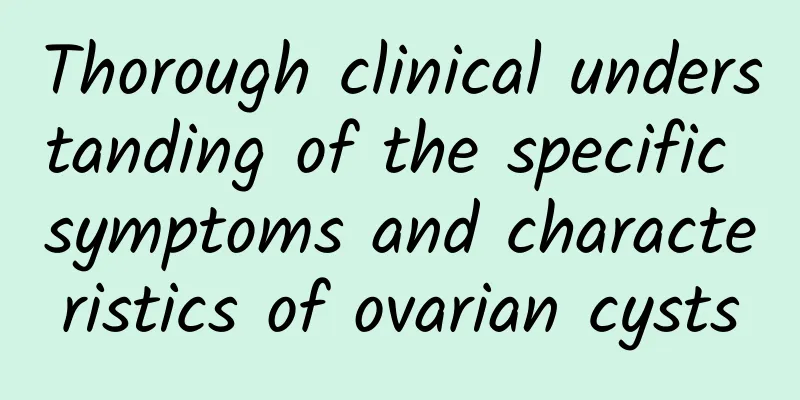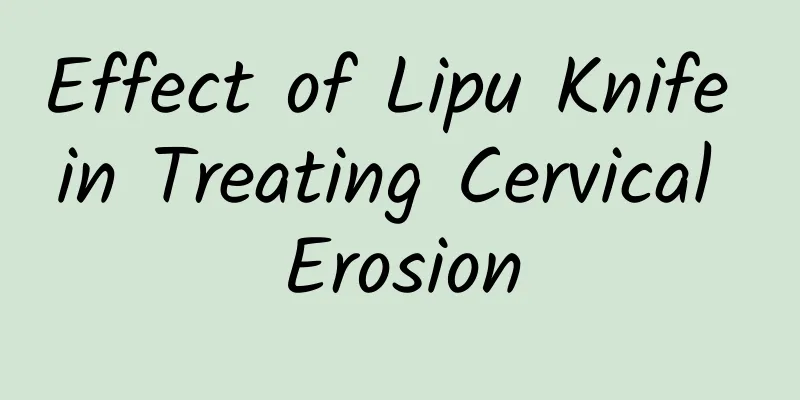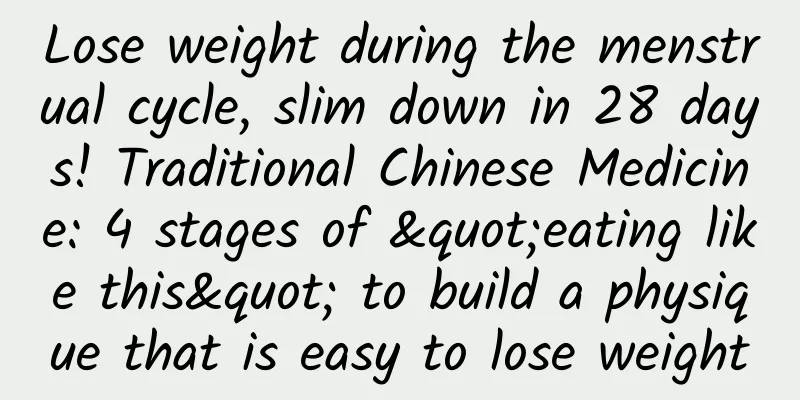What are the symptoms of cervical erosion in pregnant women? What should pregnant women with cervical erosion eat to protect their uterus?

|
The clinical incidence of cervical erosion is relatively high. Not only are postpartum women susceptible to it, but cervical erosion can also affect pregnant women, which is more harmful to them. Because pregnancy is a special period for women, it is an important process of inheriting life. Many pregnant women have reduced immunity and increased levels of estrogen and progesterone in their bodies, which causes the columnar epithelium of the cervix to migrate outward, thus causing symptoms of cervical erosion. What are the symptoms of cervical erosion in pregnant women? What are the symptoms of cervical erosion in pregnant women 1. Increased leucorrhea Increased leucorrhea is the main symptom of cervical erosion. Usually the leucorrhea is milky white or light yellow purulent secretion, sometimes bloody or mixed with blood. 2. Pain in the lower abdomen and lumbar region When cervical erosion inflammation is severe, it can spread along the main ligament of the uterosacral ligament and cause pelvic connective tissue inflammation infection, causing pain in the lower abdomen or lumbosacral region, accompanied by a feeling of falling. 3. Itching and pain in the vulva The vulva and vagina may be irritated by increased leucorrhea and may develop vulvitis or vaginitis, causing vulva and vaginal itching and pain. 4. Frequent urination or difficulty urinating When the inflammation spreads to the bladder triangle or around the bladder, pregnant women may experience frequent urination or difficulty urinating. What should pregnant women eat to protect their uterus if they have cervical erosion? 1. Milk Milk not only contains relatively rich protein, but also contains calcium. Elderly people can avoid osteoporosis by drinking more milk, children can grow taller by drinking milk, and women can protect the uterus by drinking milk. Studies have found that women who drink milk every day are less likely to have calcium deficiency in their bodies, and their chances of developing uterine diseases are reduced by 46%. Therefore, you may wish to drink more milk or consume high-calcium foods such as soy products, kelp, and dried shrimps. 2. Foods containing folic acid Folic acid is a water-soluble vitamin B, often found in green vegetables and other foods. Don't think that folic acid is only needed by pregnant women. Of course, taking enough folic acid during pregnancy and preparation can reduce the probability of the fetus suffering from congenital diseases. However, folic acid can also protect the uterus. Foreign studies have shown that people who regularly take folic acid have a 74% lower incidence of uterine cancer than those who do not. Pregnant women can eat more foods rich in folic acid, such as spinach, cabbage, lettuce, lentils, bananas, strawberries, cherries, etc. It is definitely right to eat more vegetables and fruits. 3. Carrots Carrots are a common food for us, and many women may not be very interested in them, after all, the taste is not particularly delicious. However, studies have shown that eating carrots 5 times a week can reduce the risk of uterine cancer by half. Carrots contain a lot of carotene, which can be converted into vitamin A in the body. Sufficient vitamin A can inhibit cancer cells in the body and enhance the vitality of the body, thus making the body healthier. It is worth noting that carotene is a fat-soluble substance that needs to be cooked with edible oil to release the nutrient. Eating it raw will cause a waste of nutrients. Warm reminder: Cervical erosion is very harmful to pregnant women and may even cause miscarriage. It is best for pregnant women to go to a regular hospital as soon as possible after they become ill. It is necessary to remind pregnant women with cervical erosion that it is best not to take medicine on their own, otherwise it will be very detrimental to the development of the fetus. In addition to causing many adverse effects on the fetus, it is more harmful to the pregnant woman herself, which is very likely to cause miscarriage and a greater chance of causing cervical malignancy. |
>>: Can cervical erosion lead to miscarriage? How to treat cervical erosion in pregnant women?
Recommend
Diet for endometrial tuberculosis
Many people do not know much about the symptoms o...
How to treat premature ovarian failure and amenorrhea? Three commonly used treatment methods in clinical practice
Now, with the progress of the times, the status o...
What precautions should be taken for people at high risk of ectopic pregnancy?
The high-risk groups for ectopic pregnancy mainly...
How to prevent uterine fluid accumulation in life
Many women often find that they have "uterin...
Can’t stop craving? 4 Tips to Effectively Suppress Appetite
How to control appetite is the most important iss...
Can’t lose weight no matter how much you exercise? Understand 7 concepts to lose weight
You work out desperately but still can’t lose wei...
Women with uterine fibroids may find themselves with vaginal bleeding
Patients with uterine fibroids may find themselve...
The harm of uterine fibroids in life
Among gynecological diseases, uterine fibroids ar...
Which is less harmful to women, medical abortion or surgical abortion? There are three fundamental differences between medical abortion and surgical abortion.
Whether it is surgical abortion or medical aborti...
What to do if you are pregnant with uterine fibroids
Uterine fibroids can coexist with pregnancy, and ...
Can Kangfu gel treat cervicitis?
Kangfu Gel has a certain auxiliary therapeutic ef...
What should a 40-year-old woman do if she has uterine fibroids?
If a 40-year-old woman is found to have uterine f...
How to Check for Ovarian Cysts
How to check for ovarian cysts? For women, the pr...
New progress in the treatment of cervical precancerous lesions
We have all discovered that in recent years, the ...
Where does the danger of Bartholinitis come from?
Bartholinitis is a common disease in women. When ...









